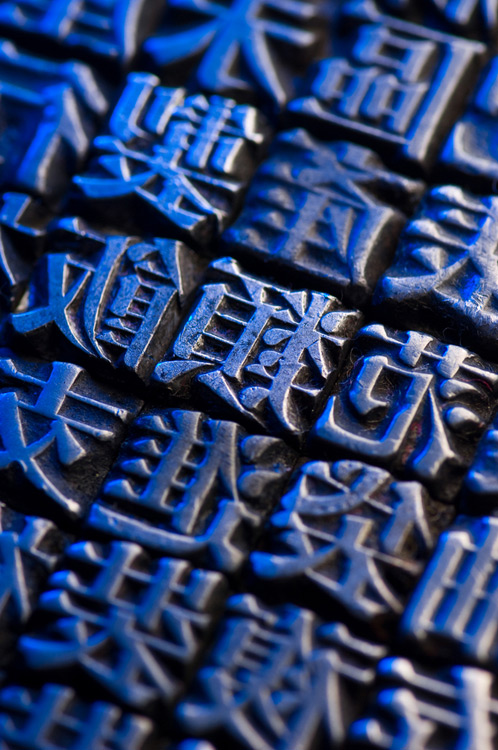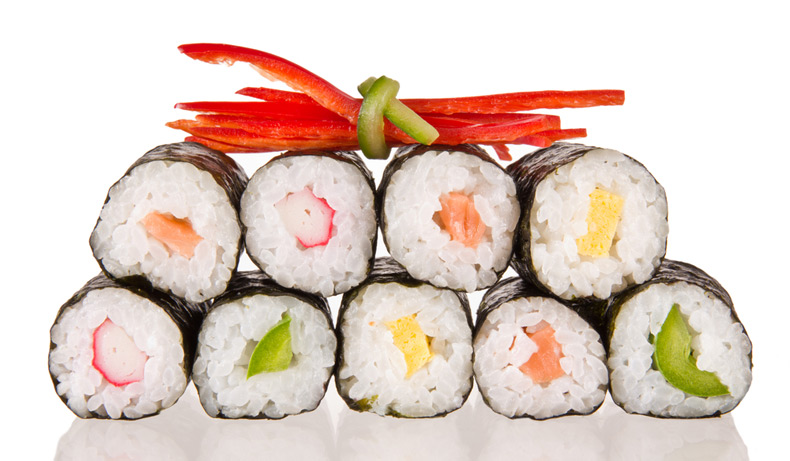Fun with Inversions
Note: This Thematic Exploration is a spinoff of essay 1643 (倒).
To a large degree, Japanese syntax is flexible. You can often rearrange sections of a sentence, possibly for emphasis. Take, for instance, the following sentence, which has a standard word order:
アメリカに行きたいなあ。
I really want to go to America!
This sentence draws our attention to the part that comes first: アメリカに. If the speaker instead wanted to put the spotlight on 行きたいなあ, she might flip around words:
行きたいなあ、アメリカに。
We now know just how badly she wants to go.
Japanese Terms for Inverted Sentences and Words
Here's the term for this kind of inversion:
倒句 (とうく: inversion (of words in a sentence)) inverted + sentence
You may recognize the second kanji as the latter half of 俳句 (はいく). Meanwhile, here's what you call a sentence produced in this way:
倒置文 (とうちぶん: inverted sentence)
inversion of words or phrases (1st 2 kanji) + sentence
Some Japanese people also find it fun to invert words, producing 倒語:
倒語 (とうご: inverted word) inverted + word
I initially wondered whether this might refer to 会社 (かいしゃ: company) versus 社会 (しゃかい: society), words that are natural inversions of one another. Nope! Then perhaps 倒語 could be akin to the way you'll see "Ambulance" backward on the front of an ambulance so that it reads correctly in a rearview mirror. No, not that either.

Another way to invert kanji! This is metal type for printing, and of course we're seeing the mirror images of characters.
Japanese Words with Inverted Hiragana
Perhaps the best example of 倒語 is this:
| たね (seed) | → | ねた (material (e.g., for article or joke); sushi ingredients; material evidence found by police) |
The first word, 種 (たね) has been around for ages. But for some reason, people saw fit to slice the yomi in half, flip around the kana, and form ねた (often written as ネタ). This is now an established word in its own right.
In another example, some people refer to 手袋 (てぶくろ: gloves) with a playfully inverted form:
| てぶくろ | → | ろくぶて |
Japanese people hear ろくぶて as "hit me six times," from 六 (ろく: six) and 打て (ぶて), an imperative form of 打つ (ぶつ: to hit, punch, spank). You may notice that this 打て has the non-Joyo kun-yomi of ぶて, not the usual うて. The ぶて lends the word a casual feeling, making it a perfect fit for ろくぶて, which refers to children's playing.
The new word is a total inversion; one reads the four hiragana from 4 to 1, rather than 1 to 4.
Japanese Words with Inverted Kanji
Even though the concept of 倒語 tends to involve hiragana manipulation, some people apply it to kanji, too:
| 寿司 (すし: sushi) | → | しーすー |
The sounds have become longer. That's because しす is harder to pronounce than しーすー, according to one native speaker. Moreover, when しす is written as 死す, it means "to die"!

The same native speaker notes that しーすー sounds rather dated, a relic of the 1980s. So does the following inversion:
| 銀座 (ぎんざ: Tokyo district) |
→ | ざぎん |
Nevertheless, this inversion has staying power, possibly for the reason she cites: "Ginza is one of the most sophisticated shopping areas in Tokyo. It's got Louis Vuitton, Coach, and Gucci. Going to Ginza is cool, and referring to 銀座 as ざぎん is even cooler."
Some Tokyoites also invert the name of another area in Tokyo:
| 自由が丘 (じゆうがおか) | → | オカジュー |
The name 自由が丘 means "Hill of Freedom." By reading 丘 (おか) first, omitting が, and turning the じゆう of 自由 into じゅう (for easier pronunciation), you get オカジュー.
The Example of しょば代
Here's another example:
| 場所代 (ばしょだい: fee to reserve a rental space) |
→ | しょば代 (しょばだい: protection racket) |
People often write the second word as ショバ代, using katakana because it is slang. This term sometimes has to do with yakuza, the Japanese mafia. When vendors arrange to sell goods from festival stalls, gangsters extort money from them. The vendors end up paying the yakuza just to hold onto the spaces. As an aside, I've participated in several festivals and have organized two of my own. To sell items at a festival, you have to pay vendor fees, transport a great amount of material in two directions, arrange all those items neatly (and keep arranging them after kids topple the neat piles), spend long hours staring into space while trying to remember to smile, and deal with the public—all without a guarantee of a single sale. I cannot imagine what it's like to face mafia extortion and be forced to make extra payments on top of all that!
The yakuza don't just prey on hapless festival vendors. They also approach shopowners and restaurant owners, informing them that their businesses lie within that yakuza family's territory and that they'll need protection from other yakuza families—for a hefty price, of course. The fee for this protection racket is known as しょば代.
However, しょば代 doesn't always pertain to the yakuza. People sometimes use this term in jest, much as English speakers jokingly refer to steep fees as "highway robbery."
As If Japanese Weren't Hard Enough!
In the past, young people, particularly those in Tokyo, have enjoyed trying these kanji inversions on their friends and coworkers. Perhaps they experience the thrill of using a private code; sometimes other people don't understand kanji inversions, which must make the game more fun. By contrast, a native speaker tells me that everyone can understand hiragana inversions.
Oh, yeah? Everyone?! Not I! As if it weren't hard enough to read Japanese, they upped the ante!
